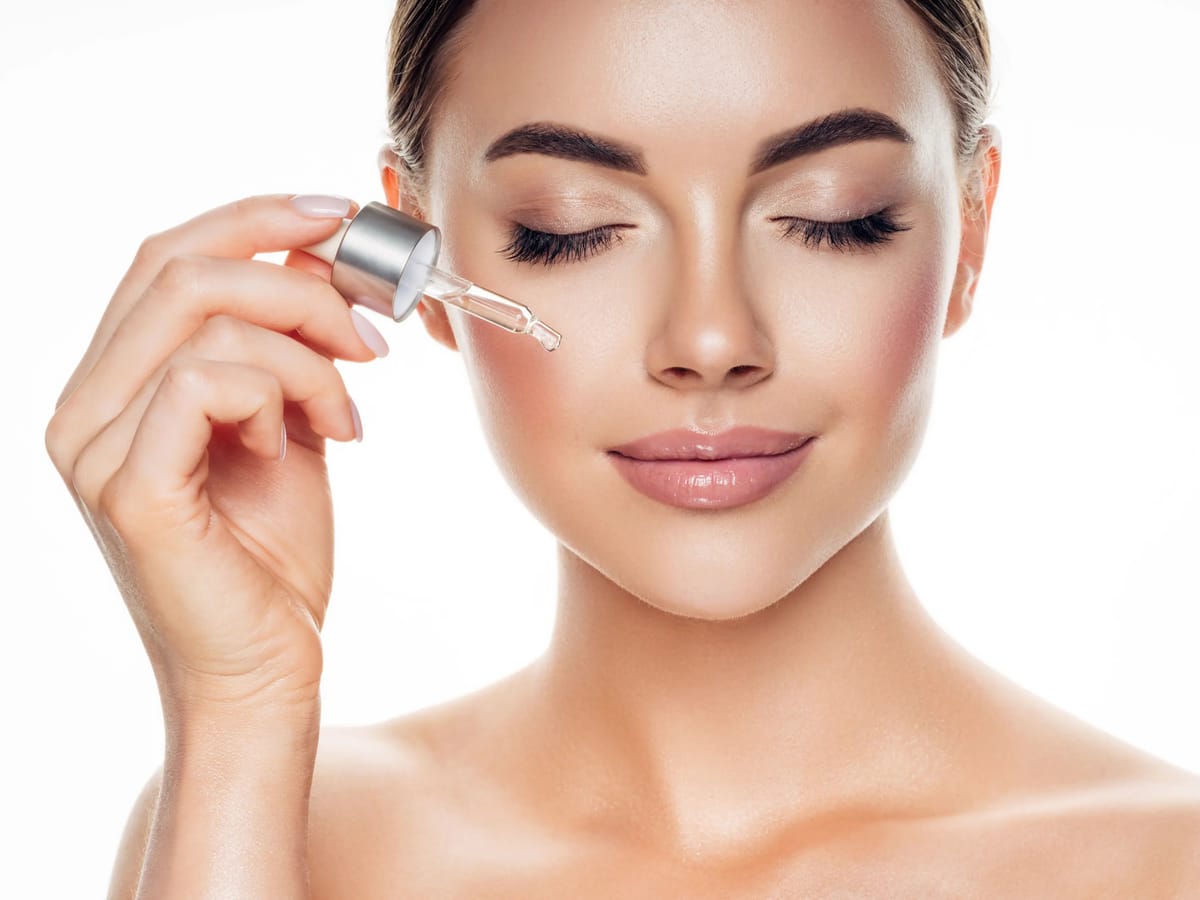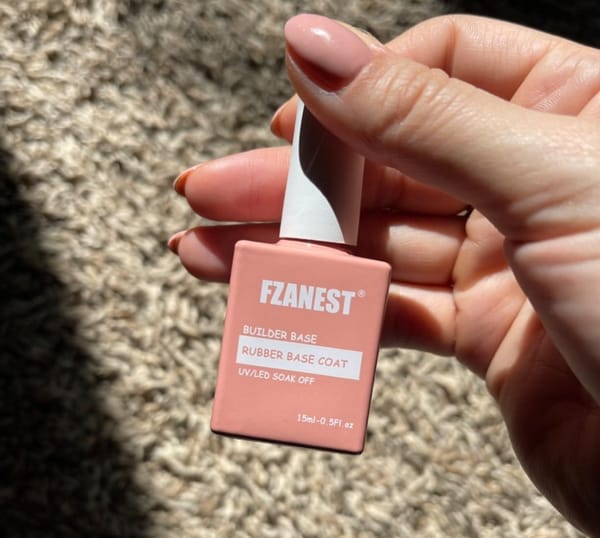Key Takeaways:
- Understanding your skin type and concerns is crucial in selecting the appropriate serum.
- Active ingredients in serums target specific skin issues such as dryness, aging, and acne.
- Incorporating the right serum into your skincare routine can significantly improve skin health and appearance.
Serums are a vital component in the skincare arsenals of beauty enthusiasts and dermatologists alike. With their high concentration of active ingredients, they are designed to penetrate deeply into the skin, delivering targeted results. But with a plethora of options available, the question arises: "What skin serum do I need?" This article will guide you through the maze of serums, helping you to find the perfect match for your skin concerns.
Understanding Skin Types and Concerns
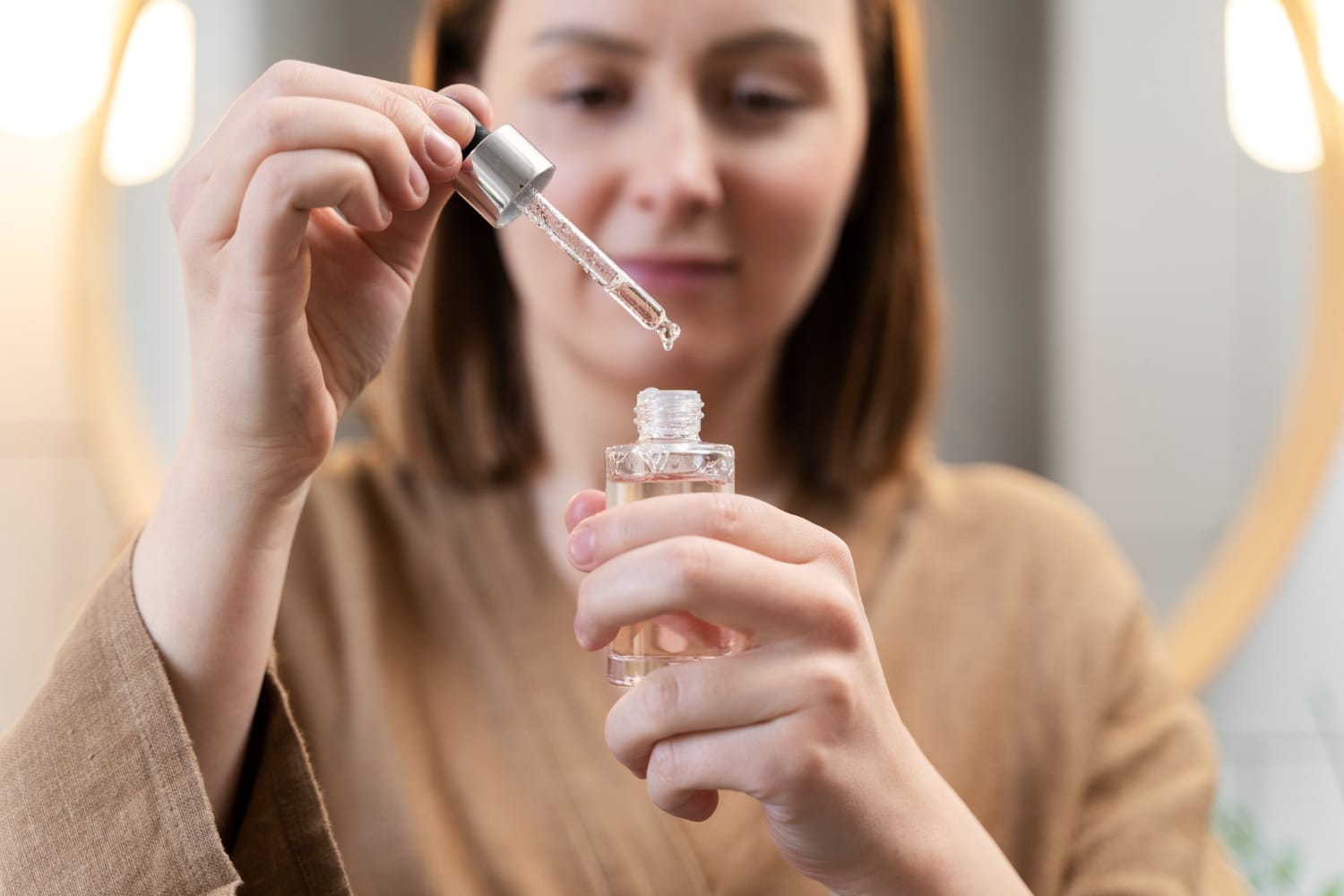

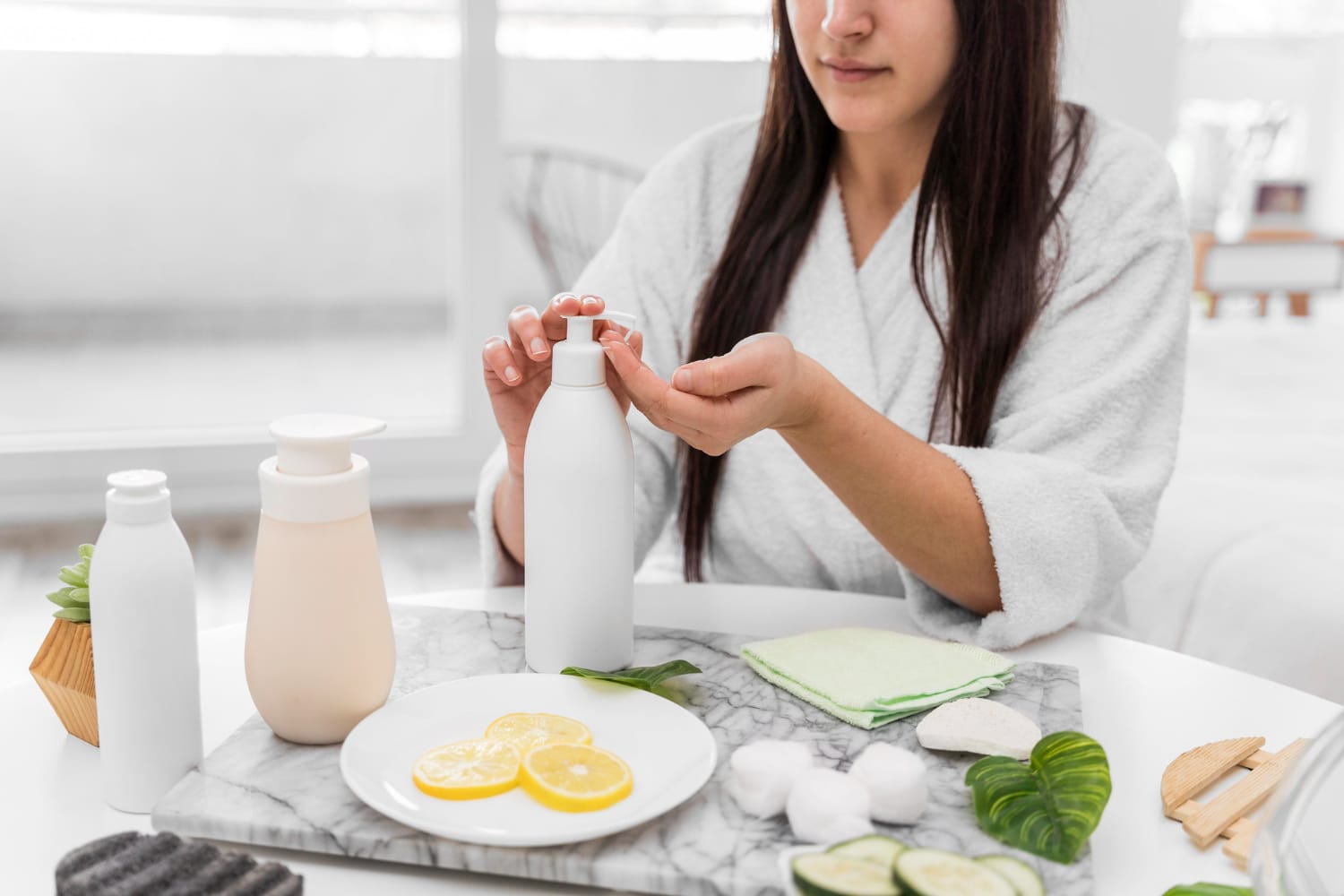
Before diving into the world of serums, it's essential to understand your skin type. Oily skin types may benefit from lightweight serums that regulate excess sebum without clogging pores. Dry skin, on the other hand, will relish in deep hydration offered by hyaluronic acid serums. Combination skin requires a balanced approach, often needing a serum that can hydrate skin while controlling oily areas. Sensitive skin types should look for serums with soothing ingredients like aloe vera to maintain a healthy skin barrier.
The Role of Active Ingredients in Serums
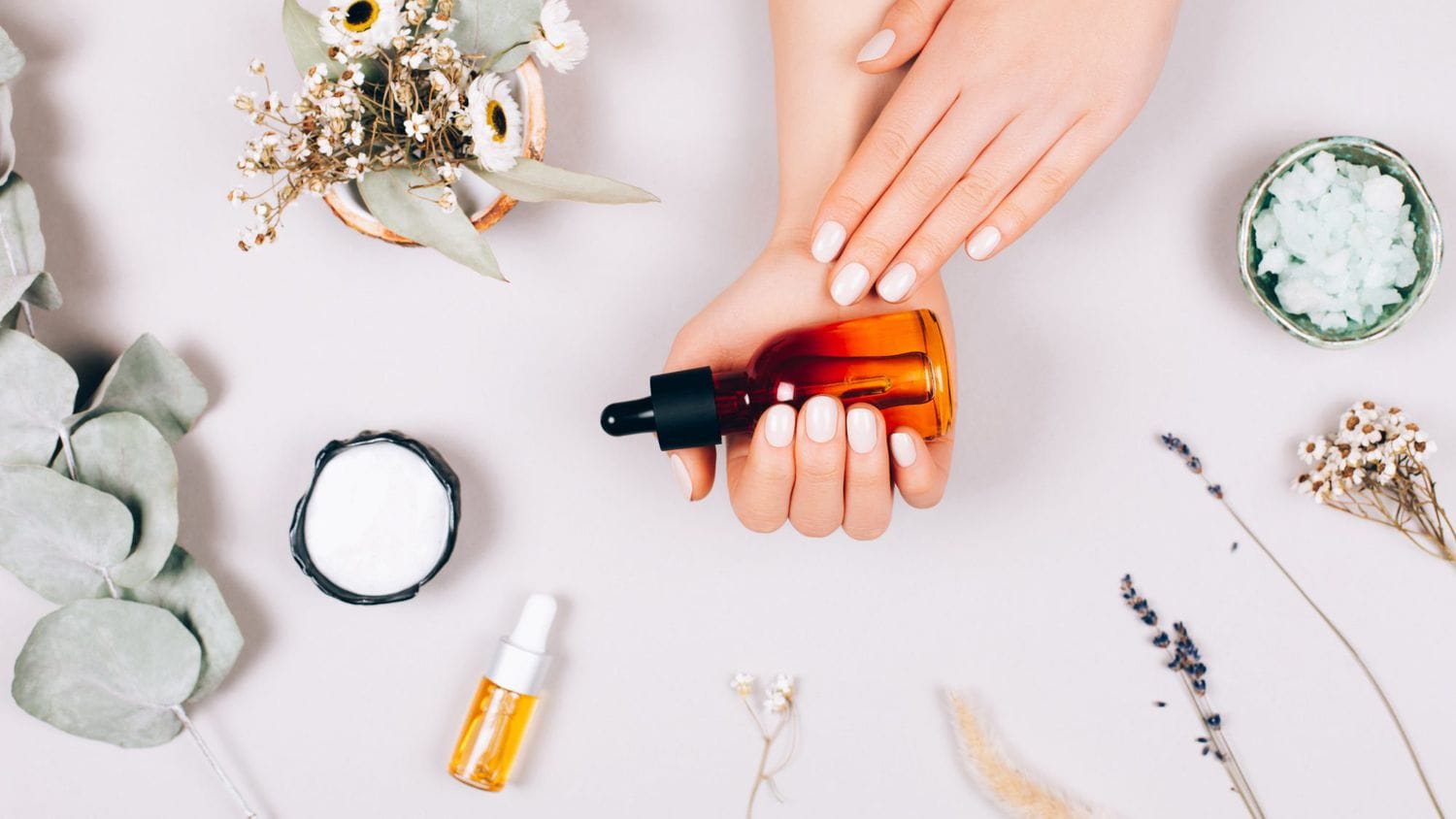
Active ingredients are the backbone of any serum, dictating its primary function. For acne-prone skin, salicylic acid, and other exfoliating acids work wonders in decongesting pores and removing dead cells. To address fine lines and wrinkles, retinol serums and those that boost collagen production can smooth lines and improve skin elasticity. Uneven skin tone and dark spots may find their match in vitamin C serum, known for its ability to brighten the complexion and inhibit melanin production.
Serums for Hydration and Texture
Hydrating serums are a boon for those struggling with dry skin or seeking deep hydration. Ingredients like hyaluronic acid attract moisture to the skin's surface, providing a plumping effect. For improving skin texture, serums with alpha hydroxy acids or glycolic acid can accelerate skin cell turnover, revealing a more radiant complexion.
Targeting Aging: Serums for Mature Skin
Mature skin has distinct needs, often requiring a do-it-all serum that can hydrate, firm, and address signs of aging. Look for serums with antioxidants like vitamin E and ferulic acid to combat free radical damage. Ingredients that promote skin cell regeneration, such as lactic acid, can also help to rejuvenate lax skin.
Combatting Acne with the Right Serum
For those with acne-prone skin, the right serum can be a game-changer. Beta hydroxy acid, or salicylic acid, is a go-to for its ability to unclog pores and exfoliate the skin. Exfoliating serums that promote skin cell turnover can also prevent the buildup of dead skin cells that often lead to breakouts.
The Science Behind Hyaluronic Acid Serums
The hyaluronic acid serum is a staple in hydration-focused skincare products, revered for its ability to retain moisture on the skin's surface. This naturally occurring molecule can hold up to 1000 times its weight in water, making it an essential component of any hydrating serum. Unlike retinol, which can be harsh on sensitive skin, hyaluronic acid is gentle and rarely irritates. It works by drawing moisture from the environment into the skin, ensuring that the skin's surface remains supple and hydrated throughout the day.
Incorporating a hyaluronic acid serum into your skin care routine can dramatically improve skin texture and combat dull skin. Its lightweight serum formulation penetrates deeply without leaving a greasy residue or clogging pores. This makes it an excellent choice for individuals with oily or acne-prone skin who may be hesitant to use heavier moisturizers. Regular use of a hyaluronic acid serum can help maintain a plump, youthful appearance, smoothing out fine lines and providing a luminous glow to the skin.
Antioxidant Serums: Your Shield Against Environmental Damage
Antioxidant serums are a critical defense mechanism for your skin's surface, safeguarding it from the relentless assault of environmental stressors such as pollution, UV rays, and free radicals. These serums are typically infused with vitamins C and E, ferulic acid, and other potent antioxidants. They work synergistically to neutralize harmful particles and prevent oxidative stress, which can lead to premature aging and a dull complexion. By incorporating an antioxidant-rich facial serum into your daily regimen, you provide your skin with an extra layer of protection, keeping it radiant and resilient.
Incorporating an antioxidant serum into your skincare routine is particularly beneficial for those living in urban environments where pollutants are rampant. Not only do these serums help in defending the skin, but they also enhance the efficacy of sunscreen, providing a double barrier against UV damage. It's important to select a formula that doesn't clog pores, ensuring that your skin can breathe and regenerate effectively. A lightweight, non-comedogenic antioxidant serum can act as a 'do it all serum,' addressing multiple skin concerns while fortifying the skin against external aggressors.
Niacinamide Serums: A Multifaceted Approach to Skin Health
Niacinamide, also known as vitamin B3, is a powerhouse ingredient that is gaining popularity in the realm of face serums. Its multifunctional nature allows it to address a variety of skin concerns, from reducing inflammation to minimizing the appearance of pores. When applied to the skin's surface, niacinamide works to strengthen the skin's barrier, which can help retain moisture and protect against pollutants. This makes it an excellent choice for individuals living in urban environments where skin is regularly exposed to contaminants.
Furthermore, niacinamide serums can play a pivotal role in regulating oil production, which is beneficial for those with acne-prone or oily skin types. By balancing sebum levels, niacinamide helps to prevent the clogging of pores that can lead to breakouts. Its ability to improve skin texture and tone also makes it a valuable addition to any skincare regimen. Regular use of a niacinamide serum can lead to a visibly brighter and more even complexion, enhancing the overall health and appearance of the skin's surface.
Vitamin C Serums: Essential for Collagen Production and Skin Luminosity
Vitamin C serums are essential for anyone looking to boost their skin's natural radiance and support collagen production. As a potent antioxidant, Vitamin C helps to neutralize free radicals that can cause oxidative stress and premature aging of the skin. When applied topically, it can significantly improve the skin's surface by promoting a brighter, more even skin tone and reducing the appearance of fine lines and wrinkles. Its role in collagen synthesis also means that it can help maintain the skin's elasticity and firmness, which are key components of a youthful complexion.
In addition to its anti-aging benefits, Vitamin C is also known for its ability to enhance the skin's natural healing process. This is particularly beneficial for those who have experienced sun damage or have hyperpigmentation issues. By incorporating a Vitamin C serum into your daily skincare routine, you can help to fade dark spots and prevent the formation of new ones. Consistent use of a high-quality Vitamin C serum can transform the skin's surface, leaving it looking more vibrant and rejuvenated.
Peptide Serums: The Building Blocks for Firm, Youthful Skin
Peptide serums are the unsung heroes when it comes to firming and rejuvenating the skin's surface. Peptides are short chains of amino acids that serve as the building blocks of proteins such as collagen and elastin, essential for maintaining the skin's firmness and elasticity. A high-quality peptide facial serum can signal your skin to ramp up its collagen production, leading to a reduction in the appearance of fine lines and wrinkles, and an overall more youthful complexion.
When selecting a peptide serum, it's crucial to consider your specific skin concern. For instance, if firmness and elasticity are your primary goals, look for a serum that boasts a variety of peptides and doesn't clog pores. A 'do it all serum' that combines peptides with hydrating ingredients like hyaluronic acid can provide comprehensive benefits, tackling multiple signs of aging while ensuring the skin remains hydrated and plump. Regular use of a peptide serum can lead to visibly smoother, firmer, and more supple skin over time.
Retinol Serums: The Anti-Aging Powerhouse
Retinol serum is renowned for its ability to smooth wrinkles and promote a youthful complexion. As a derivative of vitamin A, retinol accelerates cell turnover, which helps shed dead skin cells and reveal fresher, younger-looking skin underneath. It's a potent ingredient in facial serums aimed at targeting signs of aging and is often recommended by dermatologists for its proven efficacy. However, unlike hyaluronic acid, retinol can be drying and may irritate if not introduced gradually into a skincare routine.
Despite its potency, a retinol serum can be a valuable addition to evening skincare regimens. It works overnight to decongest pores and refine the skin's texture, leading to a smoother and more even complexion. To mitigate potential irritation, it's advisable to use retinol in conjunction with hydrating ingredients like hyaluronic acid. This combination ensures that while retinol unclogs pores and reduces the appearance of fine lines, the skin remains hydrated and its barrier function is not compromised.
Brightening and Evening Out Skin Tone

Uneven skin tone can be addressed with serums containing exfoliating acids or vitamin C, also known as ascorbic acid. These ingredients work to fade dark spots and promote a more even, radiant skin tone. Consistent use of a morning serum with these actives can lead to a more radiant complexion.
Protecting and Strengthening the Skin Barrier
The skin barrier is your first line of defense against environmental aggressors. To strengthen it, look for serums with ingredients like ceramides or niacinamide. These can help to fortify the skin's surface and protect against irritants.
Serums for Specific Times of Day
Your skincare routine may benefit from serums tailored for specific times of the day. A morning serum might contain antioxidants to protect against pollution and UV rays, while a night serum could focus on repair and regeneration with ingredients like retinol, which is best used at night due to its photosensitive nature.
The Impact of a Board-Certified Dermatologist
Consulting with a board-certified dermatologist can provide personalized advice on which serum is best for your skin concerns. They can recommend products that are clinically proven and suited to your unique skin profile.
Incorporating Serums into Your Skincare Routine
Integrating a serum into your skincare regimen doesn't have to be complicated. After cleansing and toning, apply a small amount of serum to your face and neck, allowing it to absorb before proceeding with moisturizer and sunscreen.

How do I know which serum is right for my skin type?
Identify your skin type—oily, dry, combination, or sensitive—and choose a serum with ingredients that cater to its specific needs. For example, oily skin types may benefit from salicylic acid, while dry skin types prefer hyaluronic acid serums.
Can I use multiple serums in my skincare routine?
While layering serums is fine, it's crucial to apply them in order of consistency, starting with the thinnest. Make sure the active ingredients are compatible to avoid skin irritation when combined.
How often should I apply skin serum?
Most serums can be applied once or twice daily, depending on the product's instructions and your skin's tolerance. Always follow the usage guidelines provided by the serum manufacturer.
What serum does my skin need?
The serum your skin needs depends on your specific skin concerns and goals. If you are looking to target signs of aging, a serum containing ingredients like retinol, vitamin C, or hyaluronic acid can be beneficial. These components can enhance skin texture, diminish fine lines and wrinkles, and enhance collagen production.
For those with acne-prone or oily skin, a serum with salicylic acid or niacinamide may help control excess oil production and prevent breakouts. On the other hand, if you have dry or sensitive skin, look for serums with soothing ingredients like ceramides, peptides, or antioxidants to hydrate and protect the skin barrier.
It's important to assess your individual skin needs and concerns before choosing a serum. Consulting with a skin care professional can also help determine the best serum for your unique skin type and goals.
How do I choose the right skin serum?
Choosing the right skin serum can be overwhelming with the multitude of options available in the market. First, identify your specific skin concerns such as dryness, acne, aging, or hyperpigmentation. Look for serums that contain active ingredients targeted towards addressing these issues, such as hyaluronic acid for hydration, retinol for anti-aging benefits, or vitamin C for brightening.
Additionally, consider your skin type when selecting a serum. If you have oily skin, opt for lightweight serums that won't clog pores. For dry skin, look for hydrating serums with ingredients like glycerin or ceramides. It's also important to patch-test new serums before incorporating them into your skincare routine to ensure they don't cause any irritation or allergic reactions. Consulting with a dermatologist can also help guide you in choosing the best serum for your individual needs.
What are the top 5 face serums?
There are many excellent face serums on the market, but some of the top ones include:
1. SkinCeuticals C E Ferulic Serum: This serum is known for its powerful antioxidant properties and ability to brighten and firm the skin.
2. Drunk Elephant T.L.C. Framboos Glycolic Night Serum: This serum contains a blend of AHAs and BHAs to exfoliate and clarify the skin while reducing the appearance of fine lines.
3. Sunday Riley Good Genes All-In-One Lactic Acid Treatment: This lactic acid serum helps to smooth and brighten the skin, making it a favorite among those looking to improve their complexion.
4. The Ordinary Hyaluronic Acid 2% + B5: This affordable serum is great for hydrating and plumping the skin, thanks to its high concentration of hyaluronic acid.
5. Estée Lauder Advanced Night Repair Synchronized Recovery Complex II: A cult-favorite serum that helps repair and renew the skin overnight, leaving it more youthful and radiant in the morning.
These are just a few of the top face serums available, each offering unique benefits for different skincare concerns. It's important to choose a serum that suits your specific needs and preferences for optimal results.

Selecting the right serum for your skin can seem daunting, but by understanding your skin type, concerns, and the active ingredients best suited for your needs, you can make an informed decision. Whether you're looking to hydrate skin, combat aging, or address acne, there's a serum out there for you.


